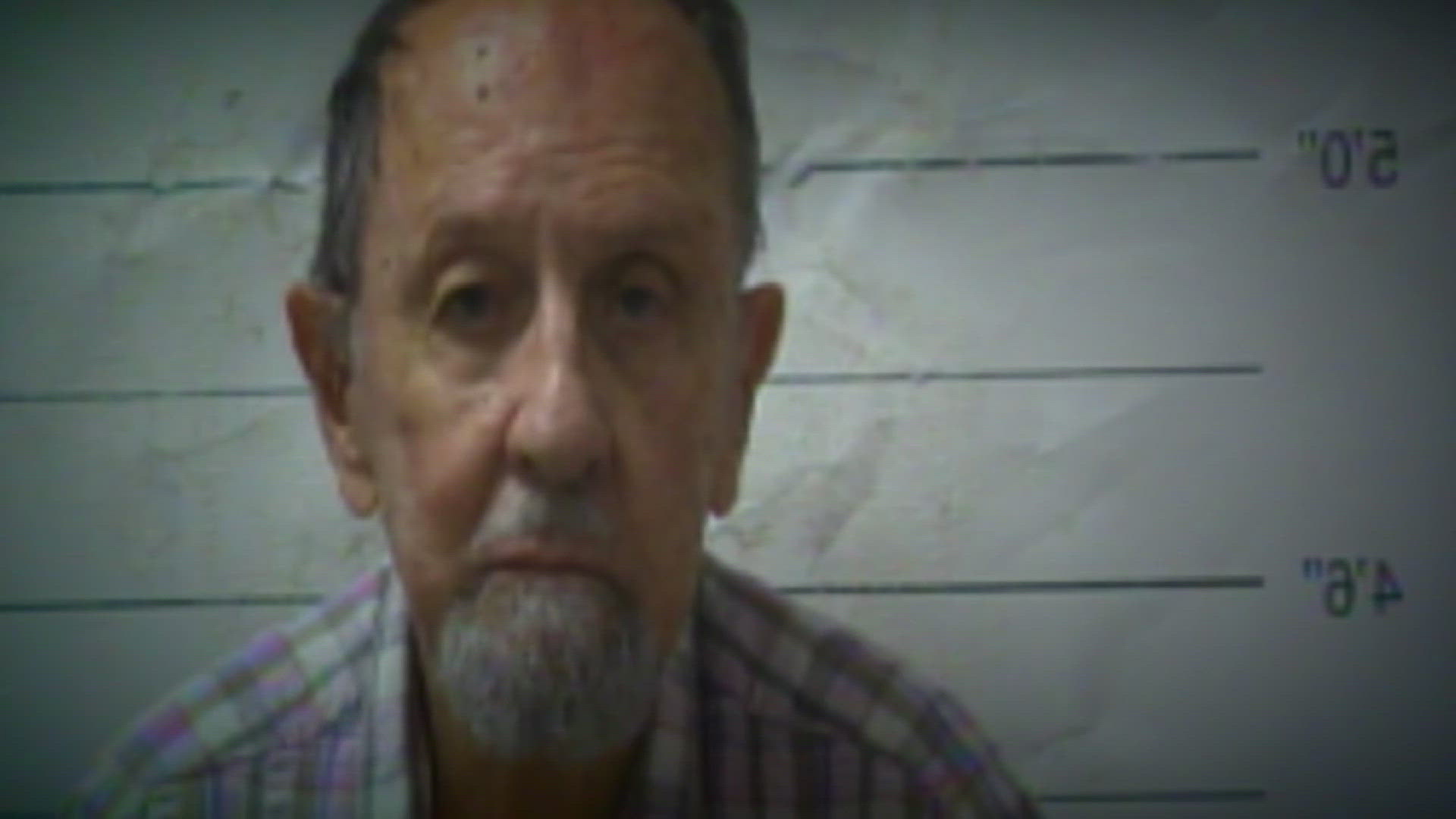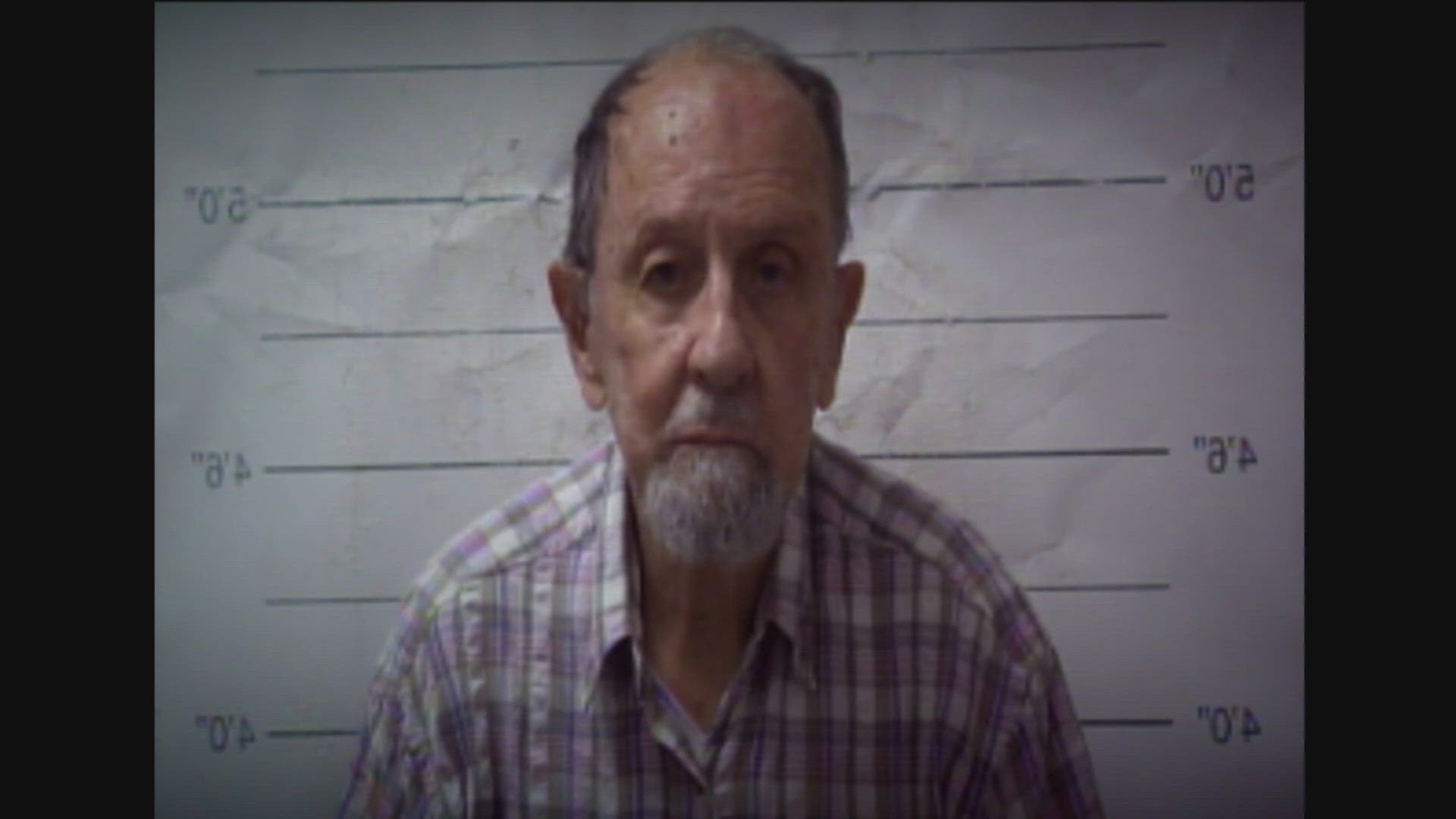NEW ORLEANS — Pedophile priest Lawrence Hecker’s trial on rape and kidnapping charges, now scheduled for Sept. 24, could be delayed yet again after a report on the 92-year-old’s mental health was filed in court Tuesday.
The court-ordered psychiatric evaluation diagnoses Hecker with "mild dementia," noting he has “good days and bad days" which could hinder his ability to assist in his own defense at trial. A copy of the report by two Tulane forensic psychiatrists, obtained Wednesday by WWL Louisiana and the Guardian, says Hecker's "cognitive abilities will continue to deteriorate. Our opinion remains that while he is able to understand the proceedings, he will continue to be impaired regarding assisting his attorney."
The report stops shy of declaring Hecker incompetent. Defense attorneys Matthew McLaren and Eugene Redmann issued a statement Tuesday urging the judge to declare him incompetent to stand trial. District Attorney Jason Williams has vehemently disagreed with that for months, arguing that Hecker is "malingering" to avoid trial. Williams has assigned first assistant Ned McGowan to the high-profile case and has come to court several times to argue in person, urging to begin the trial as soon as possible before Hecker, who turns 93 this month, deteriorates further.
Judge Benedict Willard has not yet ruled on Hecker's competency to stand trial. In August, he said the trial would begin Sept. 24 unless Hecker is declared incompetent.
The report by Drs. Sarah Deland and Janet Johnson was filed in the court record Tuesday but wasn’t available until Wednesday. It lays out the history of Hecker's psychiatric state since the doctors first assessed him in April. They noted he was "more disheveled and impaired" in May and "seemed to have a mild right-sided facial droop, suggestive of a stroke." McLaren and Redmann said the definitive dementia diagnosis “will absolutely negatively affect his ability to assist in his defense” and said Hecker has “the right to be competently tried” under the US constitution.
The constitutional definition of competence involves defendants being able to both assist their attorneys as well as understand the nature of court proceedings. Deland and Johnson's latest report says Hecker was able in May to describe the roles of defense attorneys and the DA, but was confused about the role of the judge and the jury. As for assisting in his own defense, the report says, "While he may be able to attend, focus and retain information on a good day, he is also likely to have bad days on which he cannot focus, concentrate and retain information during court proceedings."
Tuesday’s report was filed by the New Orleans District Attorney’s Office.
It echoed testimony in August from Hecker’s treating physician, Michael Russo, who also said Hecker had dementia but wasn’t providing the court-ordered report. The DA’s office did not respond to a request for comment on the new evaluation report.
Hecker’s physical and mental state has deteriorated precipitously since his indictment and arrest nearly one year ago. In late August 2023, he stood in the blazing heat for 18 minutes and clearly answered questions by WWL Louisiana and the Guardian about his sexual encounters in the 1960s and 70s. He explained in great detail how the sexual revolution had made him feel justified in sexually molesting or harassing underage boys, which he admitted to his church superiors in 1999.
Two weeks later, on September 7, 2023, he was arrested. He walked to a car under his own power. But he began suffering physical ailments in January 2024 and had to be moved from the Orleans Parish jail to the hospital with a urinary tract infection, then to a long-term care facility under armed guard. Each time he was brought to court for pretrial motions and psychiatric evaluations, he looked more frail, pushed in a wheelchair by nurses who complained at times that the trips to court were taking a toll on Hecker.
His defense team repeatedly argued that Hecker was incompetent. But Deland’s report in the spring said he had short-term memory loss and could improve with treatment.
In July, DeLand testified how Hecker understood his court proceedings and could lucidly remember events from two decades earlier. Nonetheless, he scored 21 out of 30 with regard to having mild or moderate neurocognitive impairment. And she also noted how brain scans showed evidence of Hecker having endured micro strokes, though no one at the time had gone as far as diagnosing him with dementia.
Prosecutors countered how Hecker as recently as June demonstrated being able to follow commands while also showing “a normal level of cognition” that was “appropriate for his age”.
The victim at the center of the charges against Hecker alleges that he was studying at a Catholic high school to which Hecker had ties when the clergyman choked him unconscious and sodomized him in 1975. The accuser maintains that he reported being raped to his school, though the campus never alerted police about the alleged crime.
Hecker has pleaded not guilty to aggravated rape, aggravated kidnapping, aggravated crime against nature and theft. But in 1999, he admitted to church leaders in a written statement that he had molested or sexually harassed several other children whom he met through his work as a priest.
The church still allowed Hecker to continue working until he retired in 2002, even giving him a promotion and assigning him to a church with a school attached in 2000. Then, the church allowed him to collect full benefits and paid his living expenses for 18 years after his retirement. The archdiocese waited until 2018 to notify the public that Hecker – along with dozens of other clergymen in New Orleans – were faced with credible allegations of child molestation.
New Orleans’ Archdiocese faced so many abuse-related lawsuits that it filed for bankruptcy protection in 2020. The subsequent law enforcement investigation into Hecker has since evolved into an inquiry over whether the archdiocese ran a child-sex trafficking ring responsible for “widespread … abuse of minors dating back decades” that was “covered up and not reported” to authorities, according to sworn police statements.
“These charges, in all fairness, should have been brought decades ago,” McLaren and Redmann said Tuesday. “Instead, [their] being brought now puts everyone in the situation of having a 92-year-old defendant who suffers from serious mental and physical health issues.”
Richard Trahant, an attorney representing Hecker’s accuser in criminal court, said he agreed that charges in the case should have been brought decades earlier but otherwise declined comment, adding that neither he nor his client had seen Deland’s report.
NOTE: This story was updated September 4 with details from the evaluation report by Drs. Sarah Deland and Janet Johnson.
► Get breaking news from your neighborhood delivered directly to you by downloading the new FREE WWL-TV News app now in the IOS App Store or Google Play.


